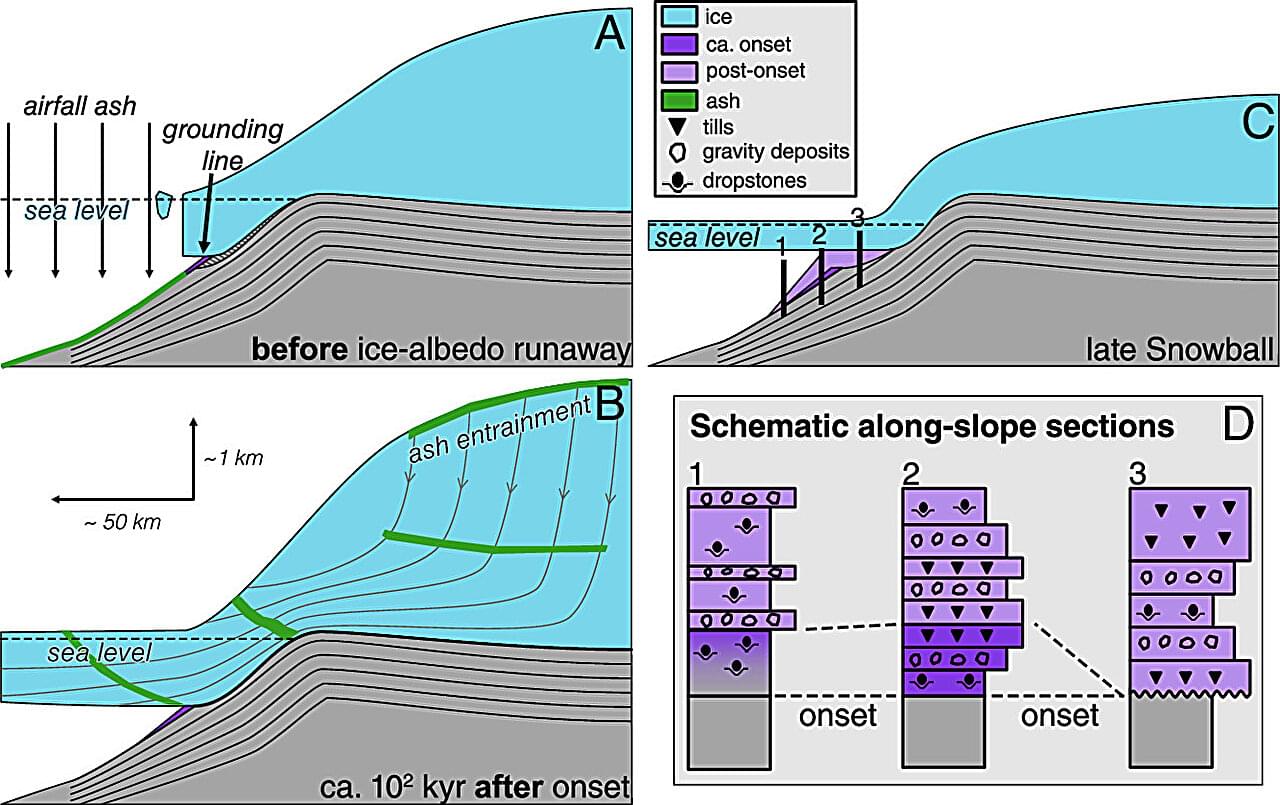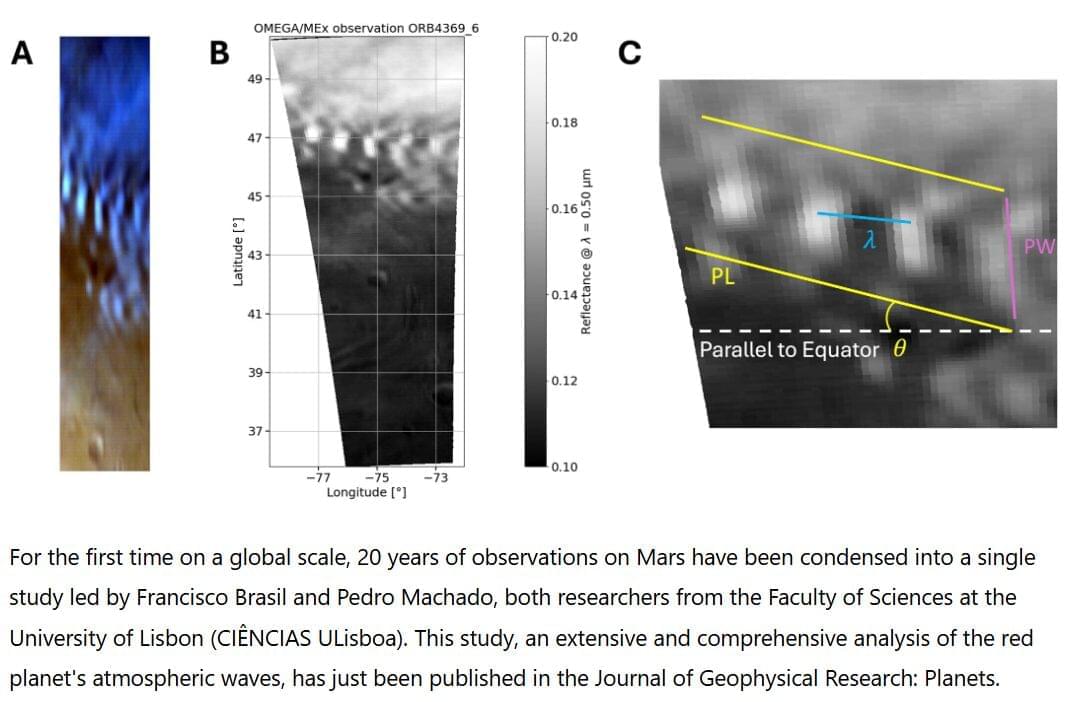Scientists at the University of California, Berkeley, and Boise State University have found evidence suggesting that the Marinoan glaciation began approximately 639 million years ago and lasted for approximately 4 million years. In their study published in the Proceedings of the National Academy of Sciences, the group used drone and field imagery along with isotopic dating of glacial deposits to learn more about global glaciation events during the Neoproterozoic Era.
Prior research has shown that during the early days of the planet, during the Neoproterozoic Era, Earth underwent two ice ages. The first, known as the Sturtian glaciation, lasted approximately 56 million years and covered the entire planet with ice. Less is known about the second event, called the Marinoan glaciation. In this new effort, the research team set themselves the task of figuring out when it began and how long it lasted.
The work involved sending drones over a part of Namibia, where prior research has uncovered evidence of glacial activity during the Marinoan. This allowed the team to map sedimentary layers that were stacked up in a way that showed little vertical shift had occurred, which meant the glaciers did not move much during the time they were there. Additional field imagery helped confirm what the team found in the drone images.





